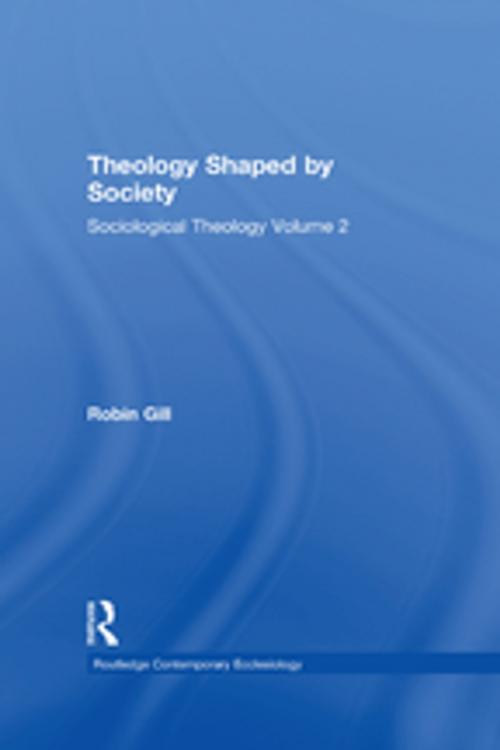Theology Shaped by Society
Sociological Theology Volume 2
Nonfiction, Religion & Spirituality, Theology| Author: | Robin Gill | ISBN: | 9781351879859 |
| Publisher: | Taylor and Francis | Publication: | May 15, 2017 |
| Imprint: | Routledge | Language: | English |
| Author: | Robin Gill |
| ISBN: | 9781351879859 |
| Publisher: | Taylor and Francis |
| Publication: | May 15, 2017 |
| Imprint: | Routledge |
| Language: | English |
Theology Shaped by Society argues that the sociology of knowledge can make an important contribution to theology. Part I argues that theology can be seen as a 'socially constructed reality' that is sometimes dangerously related to power but, at other times, that is a positively engaged discipline taking the risk of being shaped by particular societies and cultures. From this second perspective theology is seen properly as a thoroughly relational discipline, as itself a social system. Part II examines mission shaped by society and maps this in practical terms by examining recent, and surprising, religious trends in York. Part III shows how music can imaginatively shape theology and reveal unexpected resonances. Over the last 30 years a number of theologians have been using aspects of sociology alongside the more traditional resources of philosophy. In turn, sociologists with an interest in theology have also contributed to an interaction between theology and sociology. The time is right to revisit the dialogue between theologians and sociologists. In his new trilogy on Sociological Theology, Robin Gill makes a renewed contribution to the mapping of three abiding ways of relating theology and sociology, with the three volumes covering: Theology in a Social Context; Theology Shaped by Society; and Society Shaped by Theology.
Theology Shaped by Society argues that the sociology of knowledge can make an important contribution to theology. Part I argues that theology can be seen as a 'socially constructed reality' that is sometimes dangerously related to power but, at other times, that is a positively engaged discipline taking the risk of being shaped by particular societies and cultures. From this second perspective theology is seen properly as a thoroughly relational discipline, as itself a social system. Part II examines mission shaped by society and maps this in practical terms by examining recent, and surprising, religious trends in York. Part III shows how music can imaginatively shape theology and reveal unexpected resonances. Over the last 30 years a number of theologians have been using aspects of sociology alongside the more traditional resources of philosophy. In turn, sociologists with an interest in theology have also contributed to an interaction between theology and sociology. The time is right to revisit the dialogue between theologians and sociologists. In his new trilogy on Sociological Theology, Robin Gill makes a renewed contribution to the mapping of three abiding ways of relating theology and sociology, with the three volumes covering: Theology in a Social Context; Theology Shaped by Society; and Society Shaped by Theology.















